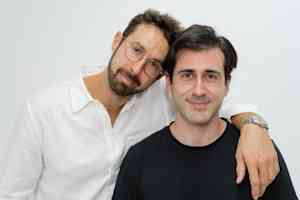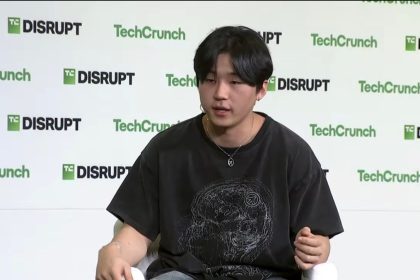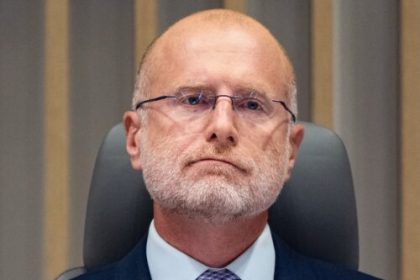Indian IT services giant opens IT delivery centre that will focus on technology that can address the challenges of the aerospace sector
By
Karl Flinders,
Chief reporter and senior editor EMEA
Published: 27 Jan 2025 17:20
Tata Consultancy Services (TCS) is targeting the next technology revolution in the aerospace sector through a delivery centre that will focus on technologies such as artificial intelligence (AI) and quantum computing.
Based in Toulouse, it is TCS’s fourth IT delivery centre in France. It will start with 50 people, but could increase to 500.
The region of France is a hub for the aerospace sector, home to Airbus, the French space agency and hundreds of companies focused on the sector.
According to Anupam Singhal, president of manufacturing at TCS, the investment could stimulate the growth of TCS’s French operation as a whole.
TCS’s workforce in France currently stands at about 1,700 people after 30 years in the country. In comparison, the UK, with a similar size economy, has 23,000 TCS staff.
The new centre will be focused on the use of technologies such as AI and quantum computing to address the challenges faced by the aerospace and defence industries. It will also give customers access to the knowledge of TCS’s 600,000 global staff.
Industry challenges
Singhal cited the delivery delays being experienced by Boeing as an example of where the latest technologies might be used to assist aerospace manufacturers.
Despite orders for planes being at an all-time high, Singhal pointed to major challenges. “Supply chain resilience has been a big issue, and that’s the reason major suppliers have not been able to deliver the backlog of the demand they have,” he said.
Problems can escalate quickly for manufacturers when the supply chain is disrupted. Singhal gave the example of the Suez Canal blockage, which delayed the delivery of parts coming from suppliers across the world.
He said TCS is using AI to gather information in different formats, such as news reports, and work out what global or local events could impact the supply chain. It then warns the manufacturers if they need to make changes.
“The technology can process information and analyse what the possible impact could be. It can then advise the company, for example, to stock up with more items. The whole idea is that resiliency can be built in,” he said.
“Everything comes out of data, so the ability for us to connect public information with enterprise data – to understand where suppliers are and where items are coming from – means AI can tell the enterprise, ‘Deliveries may get stuck, but you have another supplier which is not affected – maybe you need to put an order into that supplier so your production line is not stopped’.”
Singhal added: “We are not saying it will replace humans, because they are in the loop, but today, all leaders and managers take decisions based on data. By using technology, we can provide a lot more data so that enterprises can make more intelligent decisions. In fact, AI technology can offer two or three possible options and let the customer decide what is the right thing for them.”
Tech for sustainability
While companies across the world talk about their targets for becoming carbon neutral, the aerospace industry is hugely dependent on fossil fuel. Singhal said TCS is working on the use of quantum computing in the design of aircraft to enable manufacturers to dramatically reduce fuel consumption.
“This is being done now with newer aircraft, which are 20% more efficient than older versions,” he said. “The lighter the plane, the lower the amount of fuel it will burn. So we built a quantum computing-based solution where the analysis of material can be done.”
Then there is the use of technology to optimise flight routes based on factors including distance, congestion and weather. “The fact is, every minute a plane is in the air, it’s producing huge amounts of carbon dioxide and airlines are burning money. We can use quantum to devise the optimal flight path so it doesn’t have to be in the air longer than necessary.”
Augmenting human skills
Optimising limited human resources is also a major challenge in a sector that is highly regulated and requires high-level skills.
Singhal said in sectors such as aerospace and defence, it is a challenge to find people with the right level of skills. But technology generally, he said, including AI, can enable less skilled people to perform the work of more highly skilled people.
“Using generative AI and natural language support, a worker can ask, ‘I need to assemble this part – tell me how to go about it’, and there could be a video or instructions for this part,” he added.
When it comes to human skills, TCS said the Toulouse centre will help accelerate recruitment in the region, accessing local talent, engaging in academic partnerships and using existing capabilities in France.
Read more on IT for manufacturing
Tata Consultancy Services to deliver Irish pension scheme
By: Karl Flinders
Room to grow in UK for Tata Consultancy Services after half a century
By: Karl Flinders
Aviva signs 15-year contract with Indian IT giant
By: Karl Flinders
BBC outsources IT to India’s Tata Consultancy Services
By: Karl Flinders









